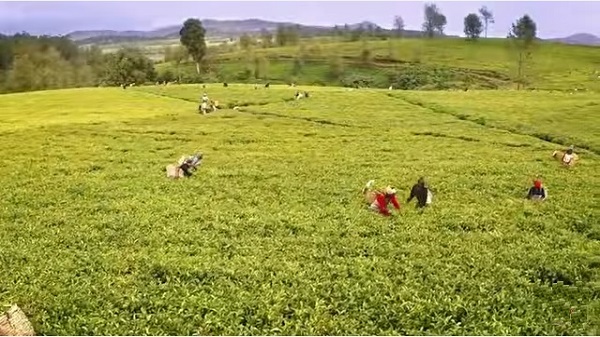
President Mulatu Teshome stresses that the expansion of many local and foreign manufacturing industries is a vital factor in the production of high value agricultural products.
By Misael Lemma (The Ethiopian Herald)
For more than a decade, Ethiopia has been enjoying fast economic growth which improved the living standard of citizens both in rural and urban areas. Particularly, the fast progress in the agricultural sector has built the capacity of the state to deal with its challenges.
Agricultural development (including enhancing agricultural products) was among the major topics which FDRE President Dr. Mulatu Teshome gave due emphasis to during his annual opening address to the joint inaugural session of the House of Peoples’ Representatives and the House of Federation.
It is to be recalled that during his previous year’s opening speech, the President also stressed the importance of increasing agricultural productivity to improve farmers’ income side by side with ensuring food security.
According to Dr. Mulatu, one of the major problems Ethiopia faced in 2015/16 was drought. The worst drought in the last 50 years had put millions of lives at risk. Nevertheless, from the start, the government had exerted its level best with available resources to withstand the drought. Besides, in situations where things went beyond its capacity, the government had also called on international intervention.
This experience has also helped the nation to withstand the drought in the first quarter of 2016/17. The drought and the local response were also major incidents that boosted national confidence that the nation has built internal capacity to handle its own problems.
That was why the President reaffirmed that the national confidence should not be taken for granted as it is the result of more than twenty years of hard work of all Ethiopians during his 2015/16 speech. Now whenever there is a threat of drought, Ethiopia does not wait for the feeding hands of international donors but addresses the issues by its internal capacity.
The successive development works in rural parts of Ethiopia to efficiently tap underground water can be taken as a major helping/enabling factor in avoiding severe destruction. This was proven right because of the fact that the 2015/16 EC production with less rainfall was by far better than years ago in the same situations. The 26.7 million tons of agricultural output at time of drought is a testimony to the fact that Ethiopia’s agricultural development policy is leading the state in the right direction. With the rigorous efforts of all stakeholders, the production is expected to increase from time to time.
In 2016/17, the agricultural sector is expected to maximize the benefits of farmers and pastoralists by improving production and productivity as well as market value of products. He also noted that the establishment of several agro-processing industrial parks to supply processed agricultural commodities to add value is well in progress.
In general, fruitful activities have been conducted so far to enhance the productivity and competitiveness of Ethiopia’s agricultural products. Accordingly, the production and productivity of staple crops have increased by nine percent though the targeted 12 percent was not achieved because of short supply of improved/ modified crop varieties to farmers.
That is why the President noted that due attention should be given to expand rural extension services to both farmers and pastoralists. They should also be provided with adequate supply of improved crop seeds and technological support.
Dr. Mulatu reminds that the growth in production and productivity was achieved through the applications of small farm tools. Consequently, speaks Dr. Mulatu, “we have been striving to introduce modern farm tools to farms which we certainly believe would further increase production and productivity.”
The President also underlined that domestic manufacturing industries should open their doors for fresh graduates from technical and vocational institutions to come up with modern farm tools like tractors, cultivators, combiners and other farm equipment.
This year, it is planned to provide the necessary support to farmers to produce higher value crops, livestock and fishery products. The production of agricultural commodities such as vegetable, fruits and lentils has increased by 38 percent. Even though this is a big achievement, it should not discourage the efforts needed to solve the problems of quality production and the expansion of logistics, warned the President. If these two problems are addressed, said Dr. Mulatu, “we would be able to increase the 220 million USD export revenue gained in 2015/16 to the planned 400 million USD in 2017/18.”
On top of that, other high value agricultural products such as tea and coffee, oil seeds, spices and grains will receive central attention as they generate more income. Ethiopia is expecting 15 percent to 20 percent productivity growth in this regard, in 2017/18. All in all, together with the livestock sector, Ethiopia is expected to generate some four billion USD from agricultural export this year.
The success of the aforementioned plan is totally dependent on transformation of traditional way of production, expansion of improved seed multiplication and adoption of modern animal husbandry. Expanding the best experiences of model farms could be the best way to encourage other farmers to work hard and produce more.
The President also stressed that the expansion of many local and foreign manufacturing industries is a vital factor in the production of high value agricultural products.
Source: The Ethiopian Herald
——
Other stories:
- Ethiopia’s ‘Super Grain’ Seeks to Capture Global Market
- Center Pushes for Use of Geo Data for Agricultural Transformation
- EVENT: The 11th Agriculture and Food Exhibition (AGRIFEX-Ethiopia 2018)
